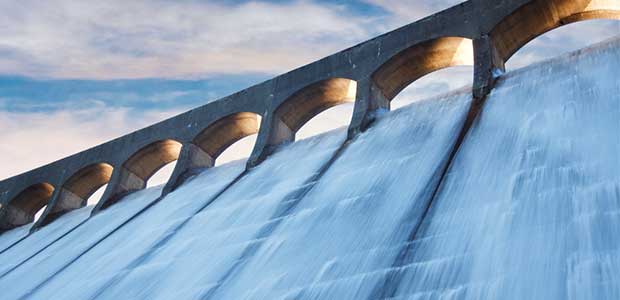
Renewable Energy Options for Your Business
Renewable energy for business is the future.
- By Emily Folk
- Aug 19, 2020
Renewable energy has taken the world by storm. With widespread benefits for the environment, renewables are the future of energy. Specifically, renewable energy for business is a flourishing investment. From planning and considerations to selecting an energy source, there are critical ideas to keep in mind.
Prior Considerations
Before you choose which renewable energy source you're going to work with, you'll need to consider the surrounding environment, the community, government restrictions and business needs.
What certifications and approvals will you need to operate with your chosen energy source? What local governments do you need to work with? Think of the city or town that the business resides in. Can others benefit from your renewable energy grid as well?
Then, take into consideration your business. What are its needs? If the building is in a position where the sun consistently hits it throughout the day, then solar may be the best option.
Finally, think about the long-term benefits in conjunction with your business goals. Renewable energy has a significant return on investment (ROI) while still reducing emissions. Working towards this goal is a necessary part of progress.
Renewable Options
In terms of options for renewable energy for business, solar, wind, hydropower and geothermal are among the most popular. Each brings different benefits and will depend on environmental availabilities and surroundings.
Solar
First, solar is often the face of the renewable energy movement, and there's a reason for that. It's easy to install and only getting cheaper every year. If your business has direct access to sunlight, the photovoltaic (PV) panels will work efficiently. Installed on the sides of the building or the roof, solar panels are versatile and an easy way to start your renewable journey.
Wind
Wind energy is the other posterchild of the renewable movement. The reason it's gaining so much momentum is due to offshore and onshore wind farms growing in size. If you have an open plot of land or a coast nearby, wind turbines may be an option. Additionally, you can look into existing wind farms and join those grids on the right terms.
Hydropower
Hydropower takes water and turns it into energy. At powerplants or dams, these systems use the currents from running water to generate a renewable source of energy. In the United States, seven percent of power comes from hydropower. If you have rivers — or oceans for tidal power — nearby, hydropower could be the best option for your business.
Geothermal
Of the most popular four sources, geothermal focuses on heating and cooling primarily. It uses the heat from below the surface of the earth to generate power. This generation then becomes heating or air conditioning as well as electricity. A geothermal setup would utilize the sides of your building and connect to the HVAC system.
The Benefits of Renewable Energy
Renewable energy is one of the most sustainable practices that a business can take on. In 2018, industry emissions accounted for 22 percent of all U.S. greenhouse gas emissions. To properly reduce this negative environmental impact, renewables are here to help.
Whichever renewable you choose for your business, it will help lower your overall pollution and emissions output. Having this commitment to the environment will draw in consumers and put out a positive public relations effort. The public wants to shop from and work with sustainable brands — yours can be apart of this group.
In the meantime, your business maintains a positive ROI, as becoming more energy-efficient brings lower operation costs.
Renewable Businesses
Renewable energy for business is the future. With solar, wind, hydropower and geothermal to choose from, your business can thrive — helping the environment, consumers, local economies and your own profits.
About the Author
Emily Folk covers topics in sustainability, conservation and green technology. You can read more of her work on her blog, Conservation Folks.